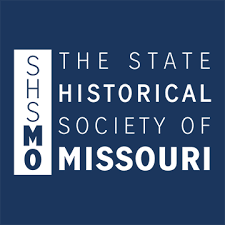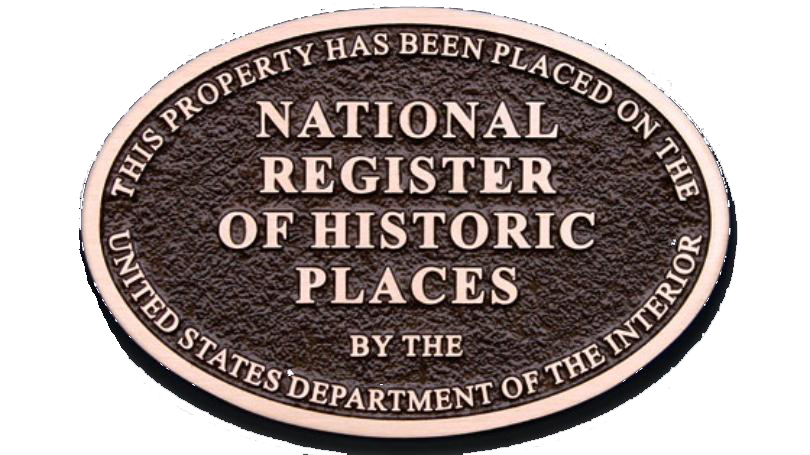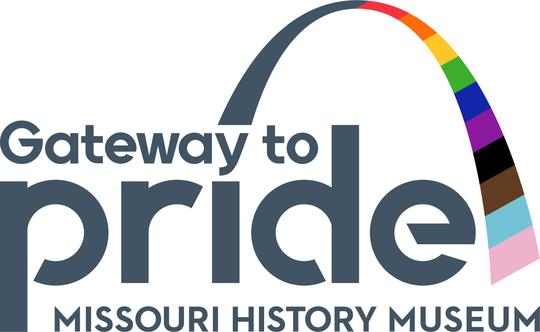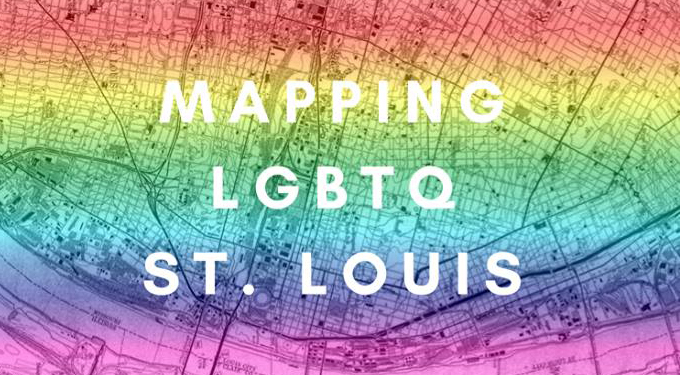Brawley Elected to State Historical Society of Missouri Trustees
 November 7, 2020: Steven Louis Brawley has been elected to a three-year term for the State Historical Society of Missouri (SHSMO) Board of Trustees.
November 7, 2020: Steven Louis Brawley has been elected to a three-year term for the State Historical Society of Missouri (SHSMO) Board of Trustees.
Steven is a public historian noted for his research related to LGBTQIA+ and pop culture topics. He is the founder of the St. Louis LGBT History Project and executive vice president of Area Resources for Community and Human Services (ARCHS).
A resident of Kirkwood, Missouri, he has 30 years of strategic not-for-profit management experience with a focus on fundraising and marketing. Steven is the author of Gay and Lesbian St. Louis, a frequent lecturer at educational institutions, and a member of the Organization of American Historians. In St. Louis, he serves as community chair of the Missouri History Museum's LGBTQ Collections and Exhibitions Committee.
SHSMO will also serve as the repository for Steven's papers documenting his personal interests and professional career.
Steven is the former board chair of the University of Missouri-St. Louis Alumni Association and the Crime Victim Center of St. Louis. A sixth-generation Missourian, he has a BA from University of Missouri-St. Louis and a MA from Saint Louis University.
Founded in 1898, SHSMO is the premier center for the study of Missouri history and culture with research centers in Cape Girardeau, Columbia, Kansas City, Rolla, St. Louis, and Springfield Missouri.
Summer 2020 Calendar

Posted May 31, 2020
This summer, the Project will be participating in a variety of exciting online programs that help us further reveal St. Louis' LGBTQIA+ history. Watch our social media accounts for updates and details.
June 6-21
June 19-28
Trinity Episcopal Church Named to National Register of Historic Places as First Missouri Site for Notable LGBTQIA+ History
 January 29, 2020: Trinity Episcopal Church in St. Louis’ Central West End is the first site in Missouri to be named to the National Register of Historic Places (NRHP) for its significance in LGBTQIA+ history. It is the first and only such site in Missouri and the only Episcopal parish in the country so honored.
January 29, 2020: Trinity Episcopal Church in St. Louis’ Central West End is the first site in Missouri to be named to the National Register of Historic Places (NRHP) for its significance in LGBTQIA+ history. It is the first and only such site in Missouri and the only Episcopal parish in the country so honored.
Trinity is recognized in particular for the years 1969 to 1993, which include its early support of gay rights, its embrace of LGBT parishioners and community members, and its compassionate response to the first AIDS patients in the 1980s. The recognition of Trinity is part of an effort by the U.S. Department of the Interior to document a more complete story of the gay rights movement, a project announced in May 2014 by Secretary Sally Jewell.
The NRHP is the U.S. federal government’s official list of districts, sites, buildings, structures and objects deemed significant to American history and worthy of preservation. Currently there are 93,500 sites across the country, with LGBTQIA+ sites numbering less than 20. “Trinity, as a progressive Episcopal church, continues today as an energetic supporter of LGBTQIA+ worshippers,” said the Rev. Jon Stratton, rector of the church. “We are honored by the NRHP recognition and wear this designation proudly.”
A formal dedication ceremony, including the installation of a plaque on the exterior of the church, located at 600 N. Euclid Avenue, will be held on Saturday, June 13, 2020. Bishop-elect Deon Johnson, whose ordination is planned for April 25, will be an honored guest and speaker. Johnson will be the first openly gay bishop to serve in the Diocese of Missouri.
Trinity’s longtime support for the LGBTQIA+ community dates back to its serving as the meeting space of St. Louis’ first gay rights organization – The Mandrake Society in 1969,” said Steven Brawley, founder of the LGBT History Project in St. Louis.
The NRHP designation came after a concentrated period of reflection, recollection and research by members of the church and those involved in the preservation of St. Louis’ early gay and lesbian history. Aiding the application process were longtime Trinity parishioners who are keepers of parish records and institutional memory for the years cited in the NRHP designation – Ellie Chapman, wife of the late Trinity rector Rev. William Chapman; Etta Taylor, church archivist; and Jym Andris, community historian.
Their work was supplemented by Ian Darnell, curatorial assistant for the LGBTQIA+ Collection at The Missouri History Museum, and Steven Brawley.
University of Kansas professor Katie Batza wrote the application as an extension of a current book project and as part of her ongoing work with the National Park Service LGBT Heritage Initiative. She said that as the application took shape, Trinity Church’s ties to the LGBTQIA+ community were inspirational.
“It was encouraging to see how committed Trinity was to the rights of all of its gay and lesbian parishioners at a time when these rights largely were unknown to the mainstream,” she said. “The first Mandrake Society meeting at Trinity was one of a handful of local, national and global political actions and protests in 1969 – including the Stonewall Riots in Greenwich Village – that marked the start of a new civil rights movement.”
Trinity Episcopal Church, founded in 1855, has stood at the corner of Euclid and Washington Avenues since 1935. Trinity is urban, socially progressive and Anglo-Catholic in its worship. Its rector is Jon Stratton, a social justice activist involved with the Clean Missouri campaign and a member of the leadership team with Missouri Jobs with Justice.
Trinity’s parishioners are young and old, black and white, gay and straight, some with many material resources and some with few, some new to the Episcopal Church and some long steeped in its traditions. Families of all kinds are part of the Trinity community. Children are a valued part of Trinity and are always welcome. Trinity has weekly Sunday school activities and, once a month, offers an alternative, lively and informal “Messy Church” service for children and families.
Trinity is a member of the Episcopal Diocese of Missouri. For more information about Trinity – including its Facebook and Instagram links – go to the church website at trinitycwe.org.





